
Esther Pugh was an American temperance reformer of the long nineteenth century. She served as Treasurer of the National Woman's Christian Temperance Union (WCTU), a Trustee of Earlham College, as well as editor and publisher of the monthly temperance journal, Our Union.

Caroline Brown Buell was an American activist who lectured and wrote on behalf of temperance and suffrage. She served as the assistant recording secretary (1878–80), corresponding secretary (1880–93), and a member of the Our Union publication committee (1876–83) of the National Woman's Christian Temperance Union (WCTU); as well as the president (1904) and corresponding secretary (1875–86) of the Connecticut WCTU. She also originated the plan of the Loyal Temperance Legion, the children's society of the WCTU. Buell wrote extensively for temperance publications, and other papers and magazines. She made her home in East Hampton, Connecticut.
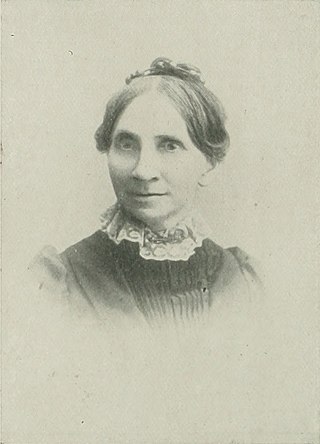
Harriet Calista Clark McCabe was an American pioneer in women's work for temperance and home missions. She took a responsible position in the formation of the Woman's Christian Temperance Union (WCTU) in the period immediately following the Women's Crusade. She was the first president of the Ohio WCTU; she gave the organization its name, and drafted its Constitution. McCabe favored equal suffrage.

Sarah Hearst Black was an American social reformer in the temperance movement. She lived a life of self-denial as a home missionary's wife in Kansas, Nebraska, and Idaho, and served as president of the Woman's Christian Temperance Union (WCTU) in Nebraska.

Elizabeth Ward Greenwood was an American social reformer in the temperance movement, and evangelist in the Methodist Episcopal Church.

Clara Cleghorn Hoffman was an American educator and temperance reformer. She became identified with the white-ribbon movement in Kansas City, Missouri, giving up her position as principal of a school to enter the work of the Woman's Christian Temperance Union (WCTU). She served as President of the Missouri WCTU for 25 years. Within the National WCTU, she lectured across the U.S, was chosen Assistant Recording Secretary, and Recording Secretary, succeeding Lillian M. N. Stevens.
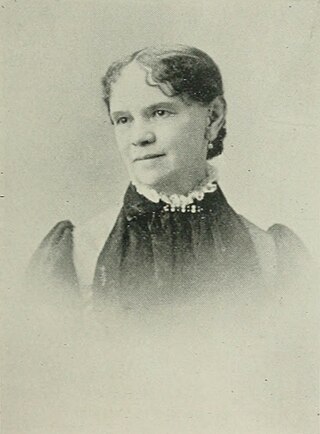
Sophie Naylor Grubb was a 19th-century American activist. During the civil war, she began to manifest the ability, energy and enthusiasm for activism that distinguished her through life. She published leaflets and tracts on all the issues of the temperance movement in seventeen languages, at the rate of fifty editions of 10,000 each per year. She lectured on the issue of women's suffrage, holding 75 meetings in Kansas in 1898. Grubb died in 1902.

Abby Fisher Leavitt was an American social reformer and one of the prominent figures of the Ohio Women's Crusade. Leavitt also served as Secretary of the Baptist Women's Foreign Missionary Society of Ohio and Treasurer of the Women's Crusade Temperance Union. She was the leader of the "Praying Band", who, in the spring of 1874, daily marched down to the esplanade of Cincinnati, visiting saloons, and holding meetings inside or outside of liquor saloons, and on one occasion, was arrested and temporarily imprisoned for her temerity. She was a co-publisher of the newspaper of the National Woman's Christian Temperance Union (WCTU). In 1891, as the "Round the World Missionary of the WCTU", the World's WCTU elected Leavitt its life president.
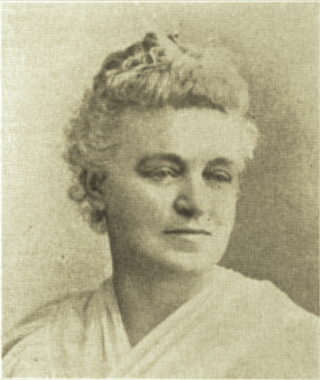
Mary Coffin Johnson was an American temperance activist and writer. She was the publisher of the National Woman's Christian Temperance Union's (WCTU) first newspaper, The Union Signal. Johnson was acquainted with Abraham Lincoln, and was a friend of Henry Ward Beecher and his wife Eunice.
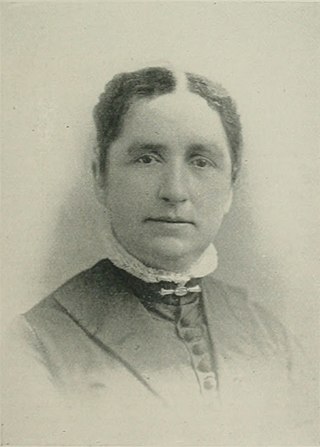
Janette Hill Knox was an American temperance reformer, suffragist, teacher, author and editor. She served as President of the New Hampshire State Woman's Christian Temperance Union (WCTU).

Martia L. Davis Berry was a 19th-century American social reformer. From her childhood, she took for her life motto and work, "God and home and native land" in whatever opportunities might be available to her. She organized the first Woman's Foreign Missionary Society of the Methodist Episcopal Church west of the Missouri River and the first woman's Club in Cawker City, Kansas. She served as State treasurer of the Kansas Equal Suffrage Association and president of the sixth district of the Kansas Woman's Christian Temperance Union (WCTU).

Susanna M. D. Fry was an American educator and temperance worker. Her teaching career began in the primary department of the village school, but her superior ability as a teacher led her swiftly into positions of greater responsibility. Fry was a professor who held the chair of English literature at Illinois Wesleyan University, Bloomington, Illinois and at the University of Minnesota. She served as president of the Minnesota Woman's Christian Temperance Union (W.C.T.U.), and managing editor of The Union Signal, the organ of the National W.C.T.U. During her career as a professor and as an official of the W.C.T.U., Fry was a frequent speaker in Prohibition campaigns and at temperance conventions. Fry was the only woman chosen from the Methodist church to speak before the Parliament of the World's Religions, 1893.

Lydia H. Tilton was an American journalist and temperance worker. Also a poet, she was well known in literary circles. "Old Glory", lyrics by Tilton, set to the tune of "Dixie", was the national song of the Daughters of the American Revolution (D.A.R.).
Elizabeth Putnam Gordon was an American temperance advocate, author, and editor. She held positions of authority with the Massachusetts, National, and World's Woman's Christian Temperance Union (W.C.T.U.) organizations. Gordon was the author of Women torch-bearers; the story of the Woman's Christian Temperance Union (1924), a story-history of the W.C.T.U.'s fifty years of activity. It was the first time the entire history of the organization, records, documents and other data were gathered into one volume.

Lucy Wood Butler was a 19th-century American pioneer temperance leader. She was the first president of the Woman's Christian Temperance Union (W.C.T.U.) of New York. Butler's financial means enabled her to give her time to charitable works.

Lella A. Dillard was an American temperance leader. She served as president of the Georgia State Woman's Christian Temperance Union (W.C.T.U.), and afterwards as National Director of the W.C.T.U.'s Peace Department.

Mary Ann Mann Cornelius was an American author and social reformer. A temperance activist, she served as president of the Woman's Christian Temperance Union (W.C.T.U.) of Arkansas. She lived several years in Tacoma, Washington, where she established a free reading room and circulating library for the young. In Tacoma and also in Topeka, Kansas, Cornelius served as a director of the humane society. She was the author of various novels and occult stories, including Little Wolf; Uncle Nathan's Farm; The White Flame; and Why? or A Kansas Girl's Query. She favored woman's suffrage.
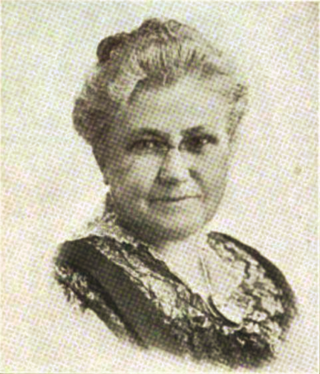
Orpha Jane "Jennie" Murray Kemp was an American temperance movement leader, writer, and newspaper circulator, nationally known for her work with the Woman's Christian Temperance Union (WCTU), and for her Food Administration campaigning during World War I. For 50 years, Kemp was an active WCTU worker. She campaigned vigorously through California and Oregon in the interests of prohibition. She served as president of the Oregon WCTU and later as secretary of the National WCTU. Kemp was editor and publisher of Our Messenger, 1889–1903; circulation manager of The Union Signal, and The Young Crusader, 1903–12; and National WCTU press superintendent since 1912.

Frances W. Graham was an American temperance activist who served as President of the New York State Woman's Christian Temperance Union (WCTU), and wrote two histories about the State organization. She also served as musical director of the National WCTU.

Rev. Stella B. Irvine was a pioneer in the American temperance and prohibition movements. She served as President of the Southern California Woman's Christian Temperance Union (WCTU), as well as National and World WCTU Director of the Sunday School Department. She wrote a great deal of literature on behalf of prohibition. Her writings and teachings were utilized for many years in Sunday schools and organizations for the education of young people throughout the U.S. She also organized the first Sunday school teachers' training class in the U.S. (1906). Irvine was a Prohibition Party candidate for the California State Assembly (1914) and the United States House of Representatives (1918).




















